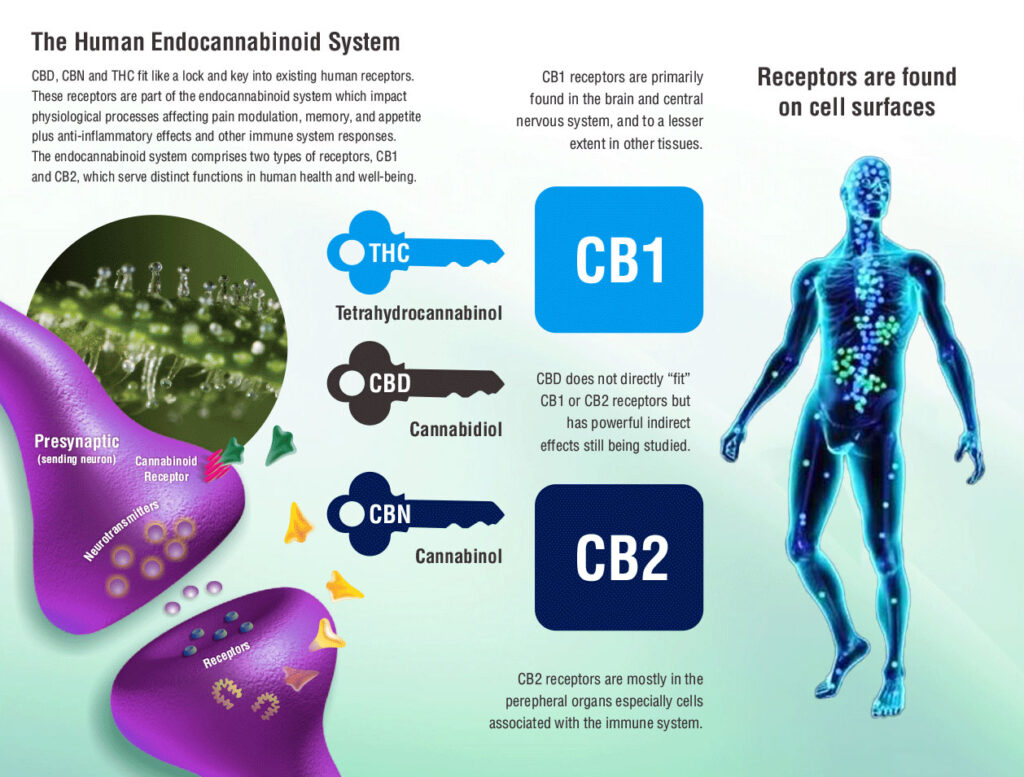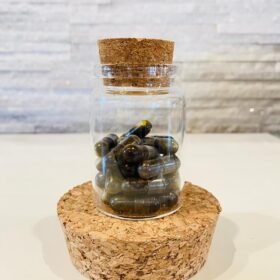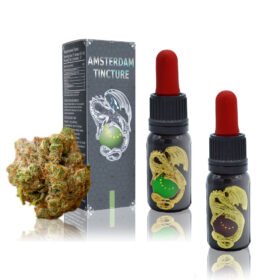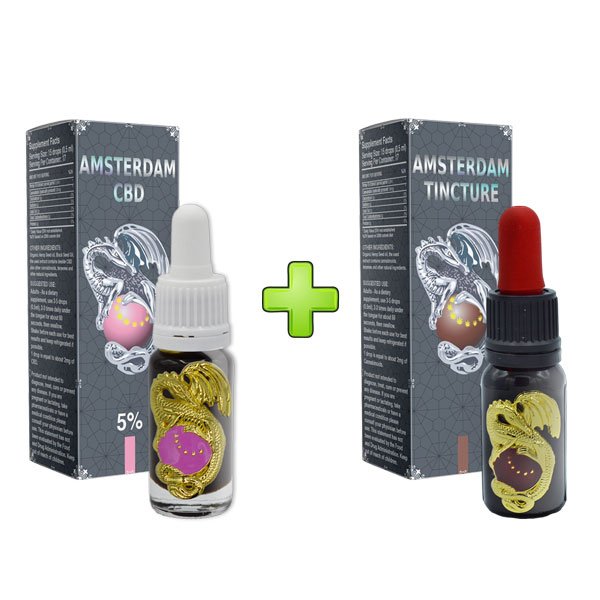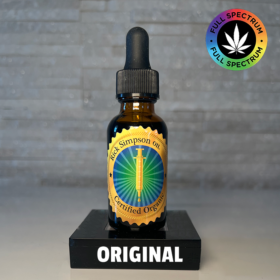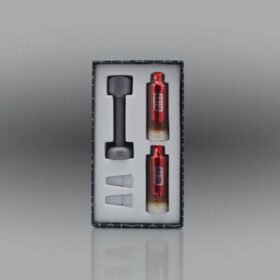- Your cart is empty
- Continue Shopping
CBD Blackseed drops
Cbd Blackseed Drops
- a 10 ml 5% (500mg) CBD with black seed oil and
- a 10 ml 3% (300mg) RSO Tincture of your choice.
These two products are ideal for starters in order to see which product you prefer more, the CBD products or the RSO products. It can also be used to alternate with the dosage.
- Used by many to reduce pain, improve appetite and sleep.
- The ratio is developed for those who seek to combine RSO and CBD!
- Made from pure, chemical-free and high quality Indica strains.
- Safe food graded ethanol extraction process to replicate the balanced phytochemical profile of a hemp cultivar.
- Tested upon its potency and quality.
- Easily shipped inside the EU. Legal in the Netherlands, however verify it for your own country!
How to use?
Allow the oil to come to room temperature before administering. Place the bottle in warm water bath if you have difficulty with extracting the oil (do not place it in a microwave).
We recommend personalising your dosage (since the effect will be different for every person), by starting with a low amount and gradually increase a dose until the most desired results are reached. Our products can be taken sublingual, vaped and you can also mix it with food or lubricate it on the skin. This way you can also drop back to a previous lower amount if needed.
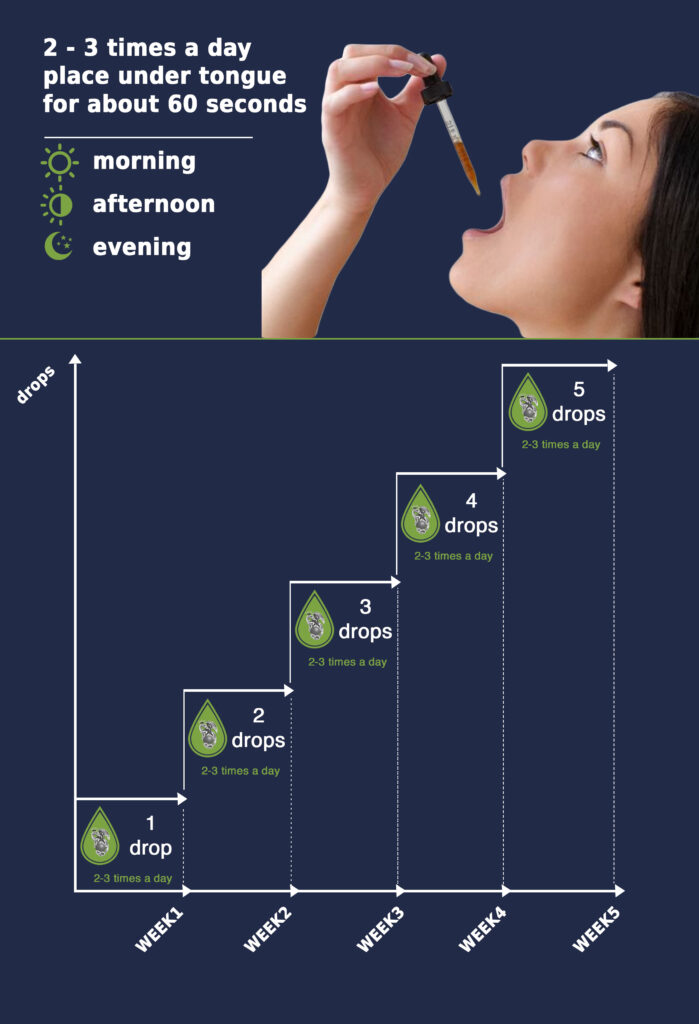
Specifications 5% CBD drops with black seed oil [Standard in this combination]
- Content: 10ml, 500mg CBD, less than 0,2% THC.
- 0.1 ml = 5 mg CBD
- 50 mg/ml
- €0,06/mg CBD
- INGREDIENTS: Cannabis extract with cannabinoids, Terpenes and Natural plant waxes, Black seed oil. All organic, no additives like heavy metals.
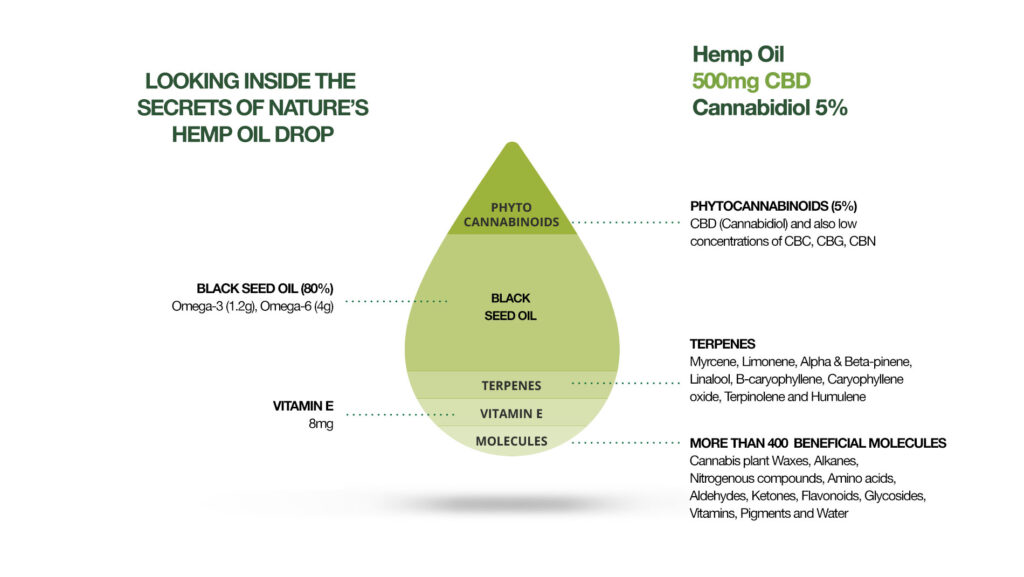
Specifications RSO Tincture with hemp seed oil [Choice 1]
- Available packages: 10ml glass bottle
- Available in two flavours: hemp seed oil (neutral flavour) or food graded alcohol.
- Content: 10ml, 300mg.
- 0.1 ml = 3 mg
- 30 mg/ml
- €0,05 mg
- INGREDIENTS: Cannabis extract with cannabinoids, Terpenes, Natural plant waxes and Hemp seed oil. All organic, no additives like heavy metals.
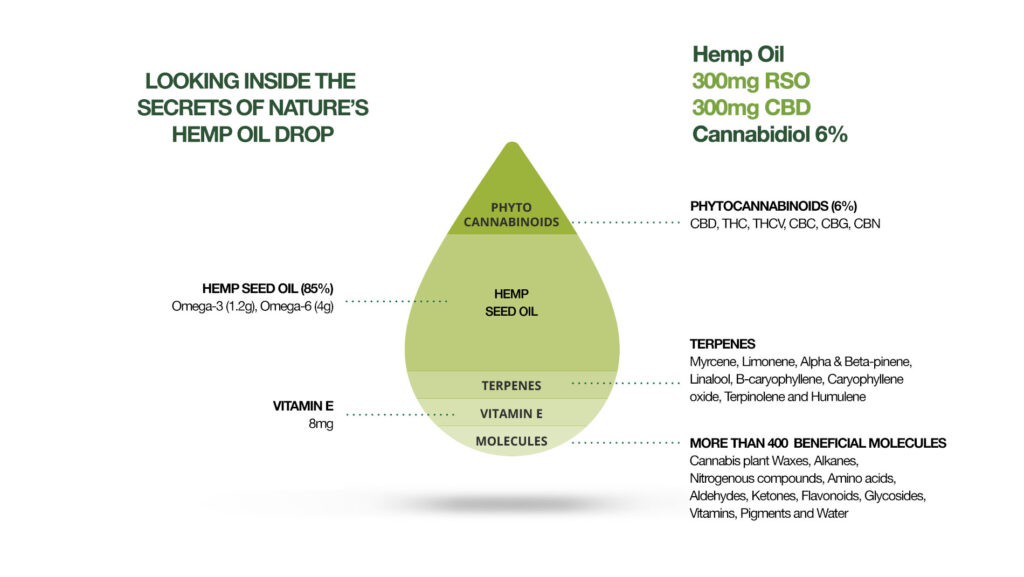
Specifications RSO Tincture with alcohol [Choice 2]
- Available packages: 10ml glass bottle
- Available in two flavours: hemp seed oil (neutral flavour) or food graded alcohol.
- Content: 10ml, 300mg.
- 0.1 ml = 3 mg
- 30 mg/ml
- €0,05 mg
- INGREDIENTS: Cannabis extract with cannabinoids, Terpenes, Natural plant waxes and food graded alcohol. All organic, no additives like heavy metals.
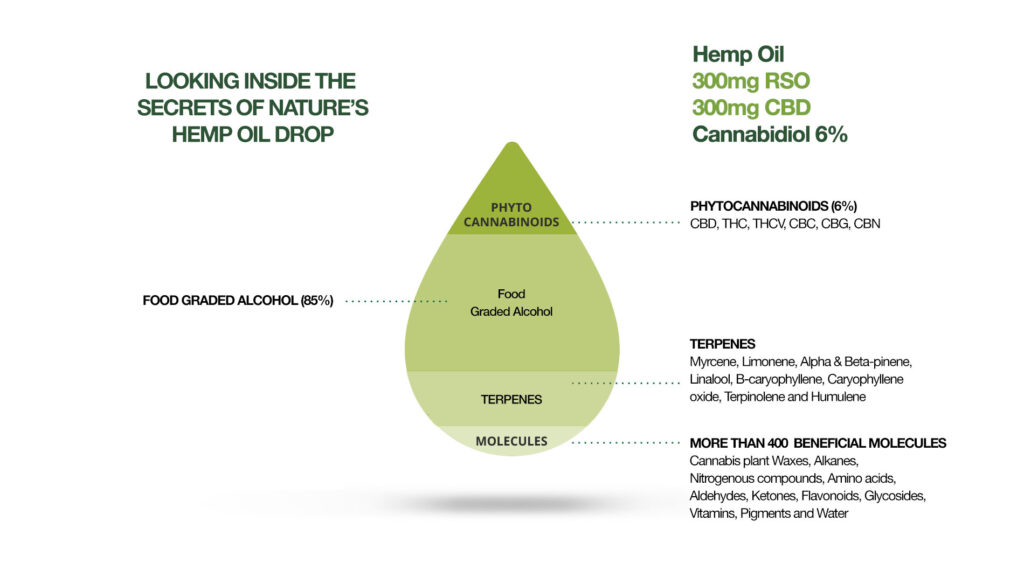
PLEASE NOTE: We make sure that we add 10ml of CBD/Hemp oil / RSO tincture inside a bottle, but it can appear less. This is because we use different coloured 10ml glass bottles and some are larger than others and can actually fit almost 12ml of fluid. Therefore it can appear that your 10ml bottle is not completely full.
What Research says
State of the art research suggest that CBD related products are most popularly chosen for localised pain relief, muscle soreness, tension, anxiety disorders, bipolar disorder, colitis, diabetes, epilepsy, heart disease, multiple sclerosis, nausea, Parkinson’s disease, rheumatoid arthritis, schizophrenia and inflammation.
Inflammation symptoms may require a more potent CBD product. CBD has proven most effective in treating seizures and social anxiety disorders. The oil tends to calm and can act as an anti-depressant, increasing the user’s ability to handle social stress. The oil eases side effects from a multitude of ailments, including the ones listed above.
Different concentrations of CBD have different benefits to offer depending on the way they are used, so experiment with various products to see what works for you.
The endocannabinoid system, or ECS, is a network of cannabinoids and receptors that works to regulate most functions in the human body. One of these functions, as researchers have described it, is its role as an “immuno-cannabinoid” modulator.
Researches believe that CBD may be able to protect nerve cells because of its efficacy as an antioxidant. Few people know, in fact, that the U.S. government actually holds a patent on cannabinoids for this exact purpose.
Research on CBD in animal models abounds and the cannabinoid seems to be able to interact with the immune system, reduce inflammation, and reduce pain from a number of conditions.
A 2015 review published in Bioorganic and Medicinal Chemistry discussed the anti-inflammatory properties of CBD. The reviewers found that CBD reduces inflammation through several pathways in the body, and represents an effective potential treatment for a range of conditions characterised by inflammation.
A 2016 study published in Clinical Hemorheology and Microcirculation investigated CBD as a treatment for early pancreatic inflammation in diabetic mice. Pancreatic inflammation can lead to diabetes due to an invasion of immune cells that destroy insulin-producing cells. The mice who received 10 weeks of treatment with CBD developed diabetes later than the mice that didn’t receive the treatment. CBD-treated mice also showed a significant reduction in immune-cell activity.
A 2017 study in the journal Pain examined the effects of CBD in male rats with osteoarthritis. After two weeks, acute inflammation of the joints was reduced by local CBD treatment applied to the area. The administration of CBD was also found to prevent the development of nerve damage and joint pain.
Research using animal models has shown that CBD may be able to modulate the immune system. While CBD does not have much affinity for the body’s cannabinoid receptors, it does affect other receptors and targets. According to a 2018 study published in Neurology, CBD binds to and desensitises receptors known to mediate pain and sensory perception, inflammation, and body temperature.
The researchers tested CBD against a wide variety of bacteria, ”including bacteria that have become resistant to the most commonly used antibiotics,” says Mark Blaskovich, PhD, senior research officer at the Centre for Superbug Solutions at the Institute for Molecular Bioscience at the University of Queensland in Australia.
The development is important, as antibiotic resistance is reaching dangerously high levels, according to the World Health Organization.
“The first thing we looked at is CBD’s ability to kill bacteria,” Blaskovich says. “In every case, CBD had a very similar potency to that of common antibiotics.”
The researchers tested the CBD against some strains of staphylococcus, which cause skin infections, and streptococcus, which cause strep throat. In another study, researchers tested topical CBD to treat a skin infection on mice. It cut the number of bacteria after 48 hours.
They compared how effective CBD was compared to common antibiotics, such as vancomycin and daptomycin. “We looked at how quickly the CBD killed the bacteria. It’s quite fast, within 3 hours, which is pretty good. Vancomycin (Vancocin) kills over 6 to 8 hours.”
The CBD also disrupted the biofilm, the layer of ”goop” around bacteria that makes it more difficult for the antibiotic to penetrate and kill.
While these results are promising and most FDA-approved medication is initially tested on animals, rigorous clinical trials on humans are needed to move CBD from alternative treatment to approved medication.
